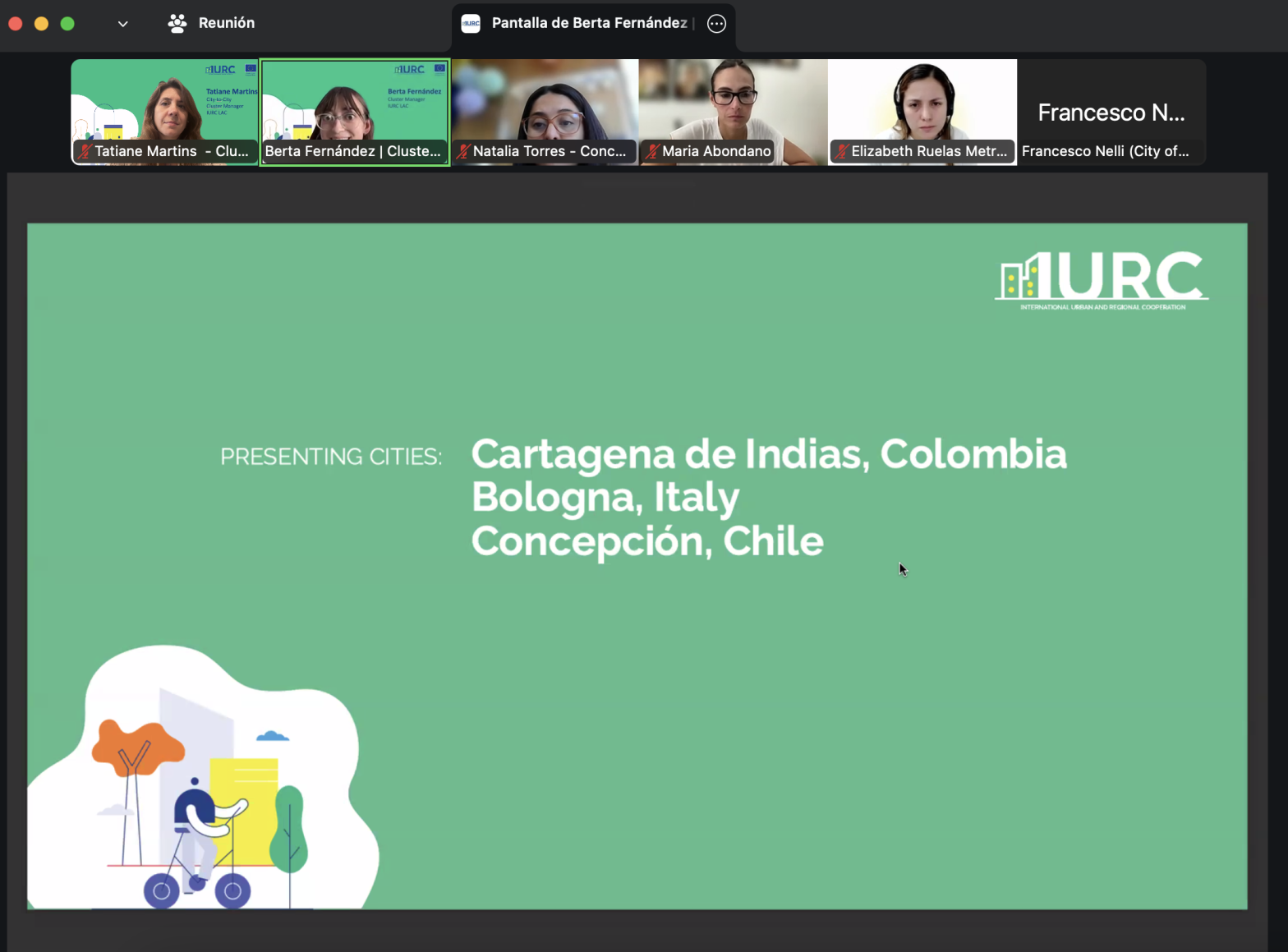8 October 2025 – Thematic Cluster on Urban Regeneration & Social Cohesion
The sixth webinar of the IURC Latin America and Caribbean (LAC) programme explored Affordable Housingwithin the Thematic Cluster on Urban Regeneration & Social Cohesion. The event brought together city representatives from Cartagena (Colombia), Bologna (Italy), and Concepción (Chile), highlighting strategies to address housing shortages, promote environmental resilience, and foster community inclusion.
Connecting Housing and Environmental Resilience in Cartagena
María Abondano presented the Cartagena de Indias’ integrated approach linking housing to environmental sustainability. She outlined Cartagena’s challenges in informal settlements and coastal protection, describing flagship projects such as Gran Malecón del Mar and affordable housing subsidies. María Fernanda stressed the importance of combining housing policies with climate resilience, including innovative concepts such as floating houses and the use of sustainable materials in construction.

Balancing Innovation and Heritage in Bologna
Francesco Nelli showcased Bologna’s model for aligning tradition and innovation. He presented the City30 initiative, Technopolo Bologna, and the School Squares Project, which increased local participation in redesigned urban areas by 270%. He also discussed the TALEA Project to combat urban heat islands and Knowledge Workshops to democratize access to science. Francesco emphasized co-design with citizens, climate resilience, and green mobility, calling for exchanges with other cities experienced in participatory planning and sustainable housing.

Closing the Housing Gap in Concepción
Natalia Torres discussed Chile’s acute housing shortage—over 91,000 new homes needed in 12 years—and the city’s challenges with rising land prices and overcrowding. She highlighted Concepción’s role in the National Housing Emergency Plan and participatory planning through programmes such as DS19. Natalia noted the city’s goal to increase its limited 8 m² of green space per person and to integrate social inclusion, green infrastructure, and sustainable mobility inspired by European best practices.

Collaborative Learning and Next Steps
The webinar was moderated by Berta Fernández, IURC LAC Cluster Manager for Urban Regeneration & Social Cohesion, with closing remarks by Tatiane Martins, IURC LAC Cluster Manager. They encouraged participants to identify peer cities for developing pilot projects ahead of the Smart City Expo World Congress in Barcelona (November 2025).
